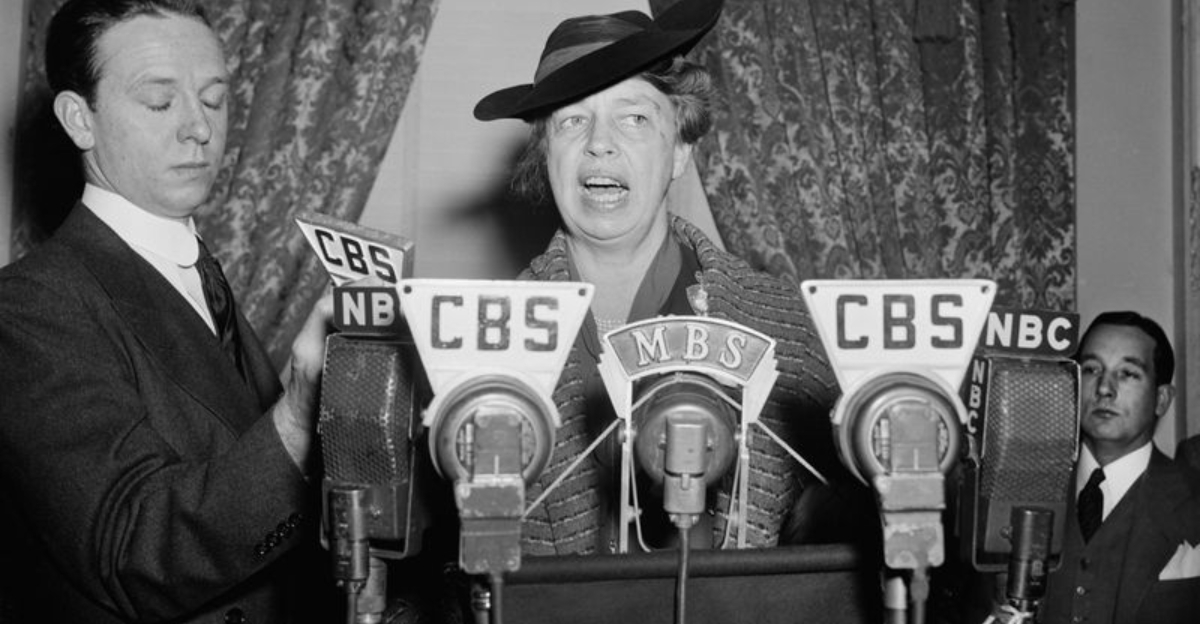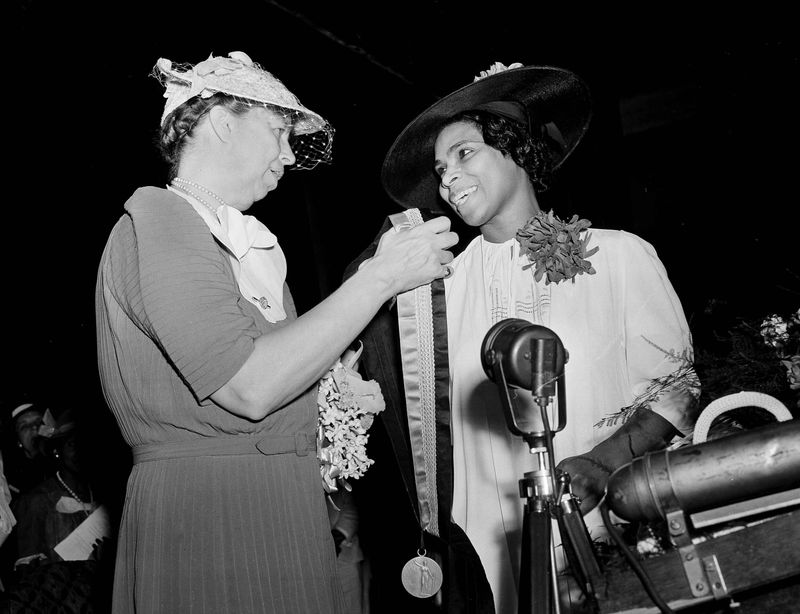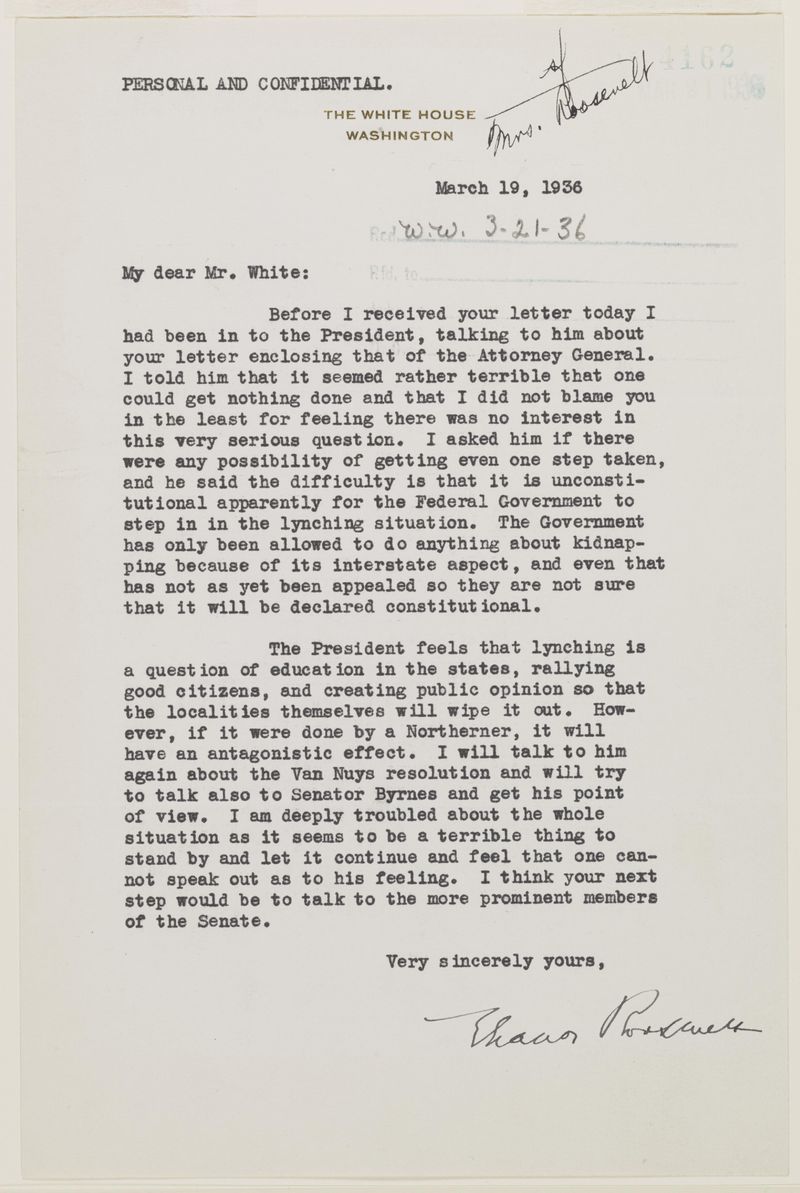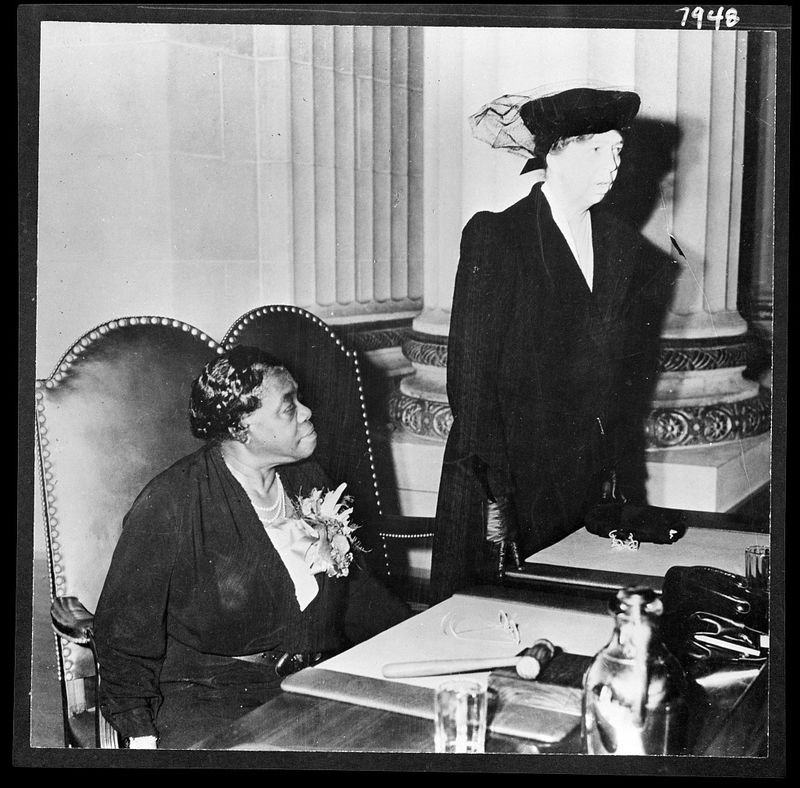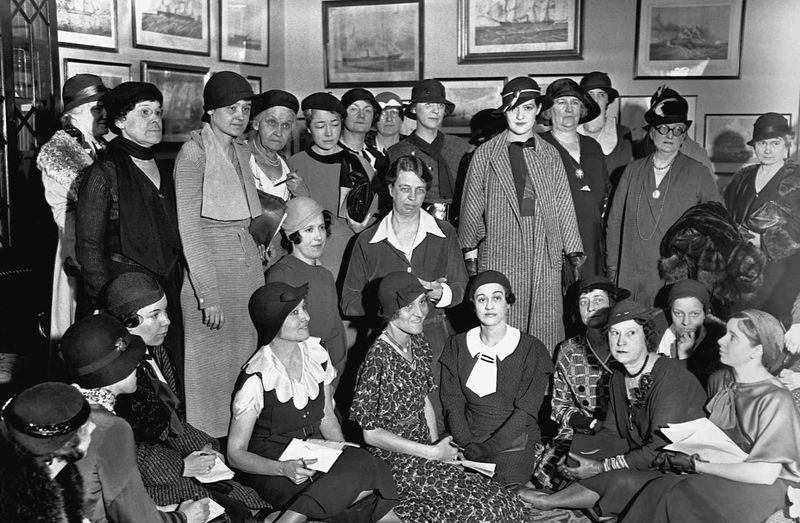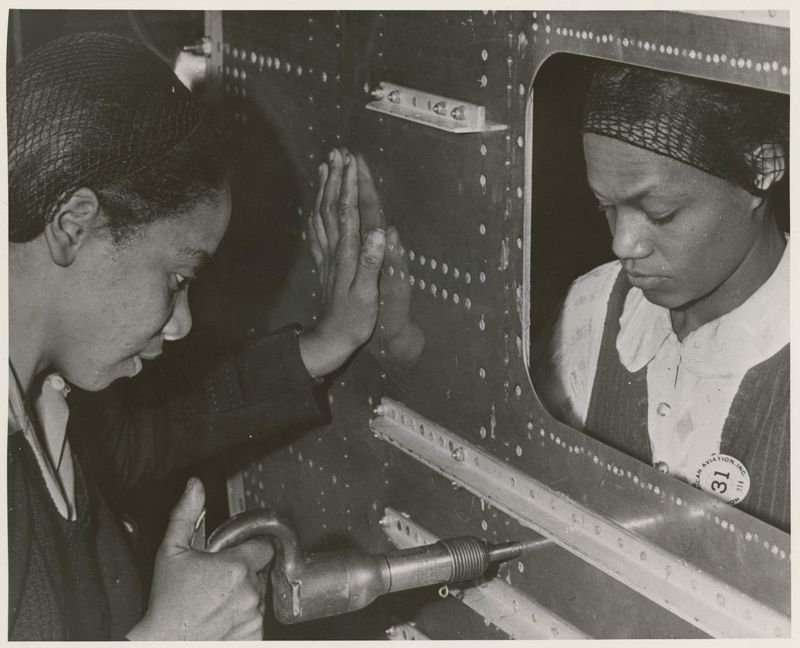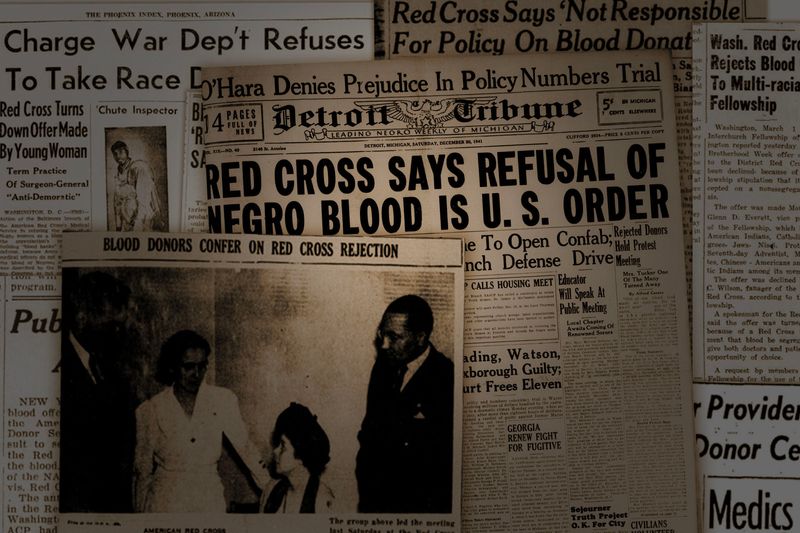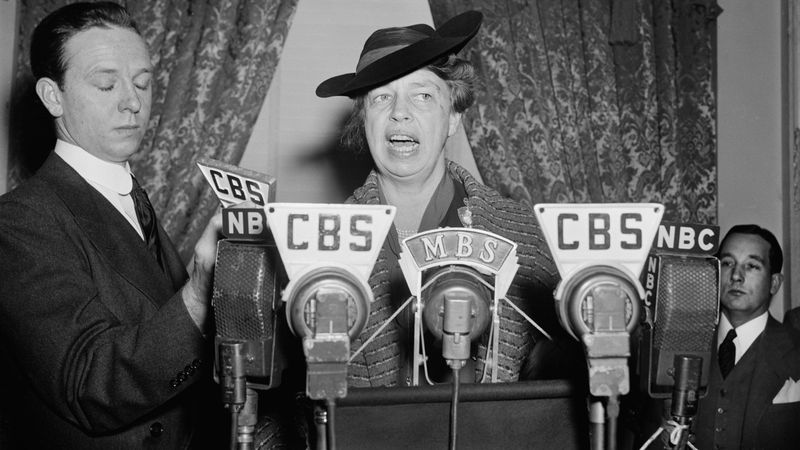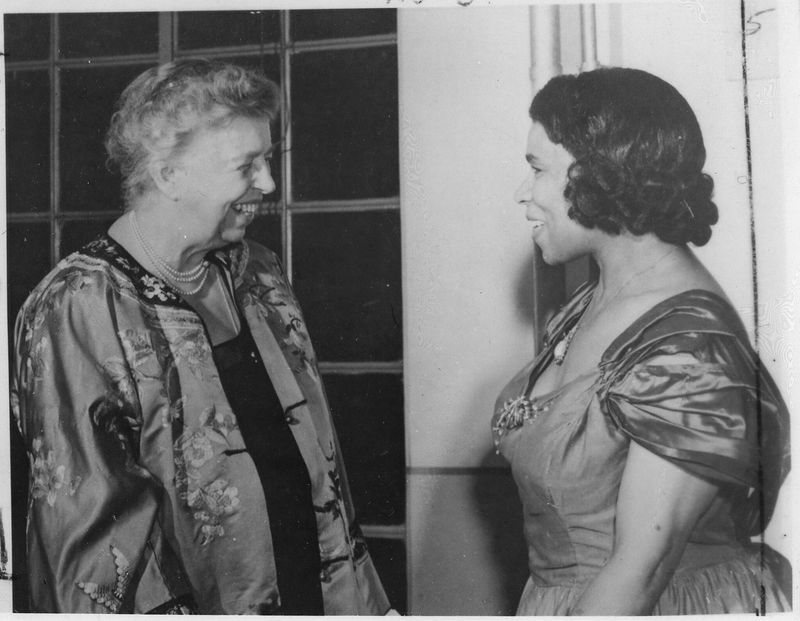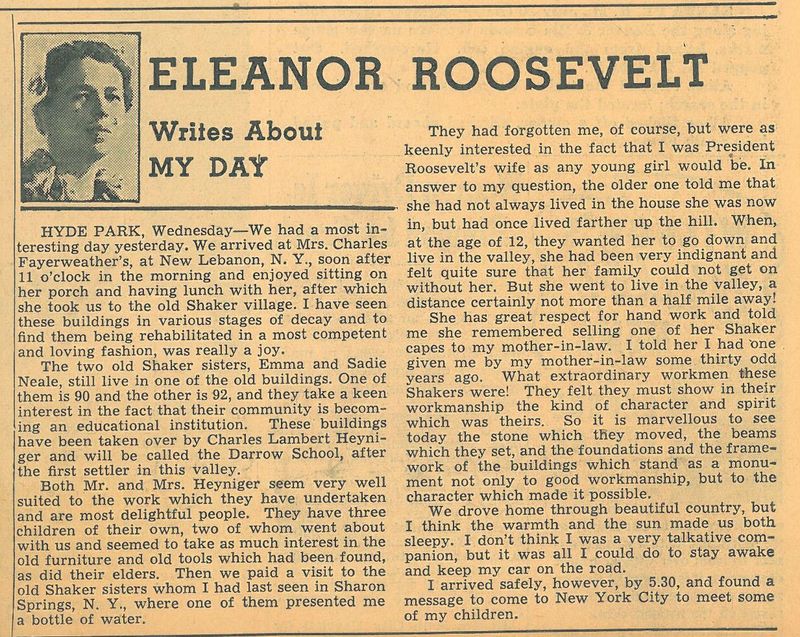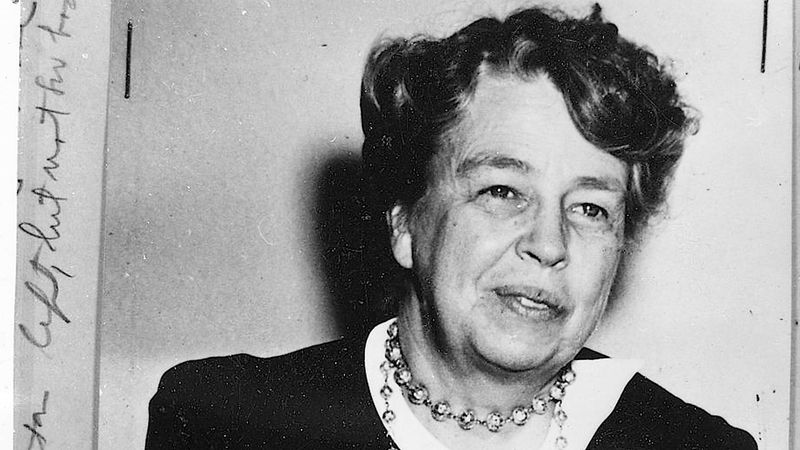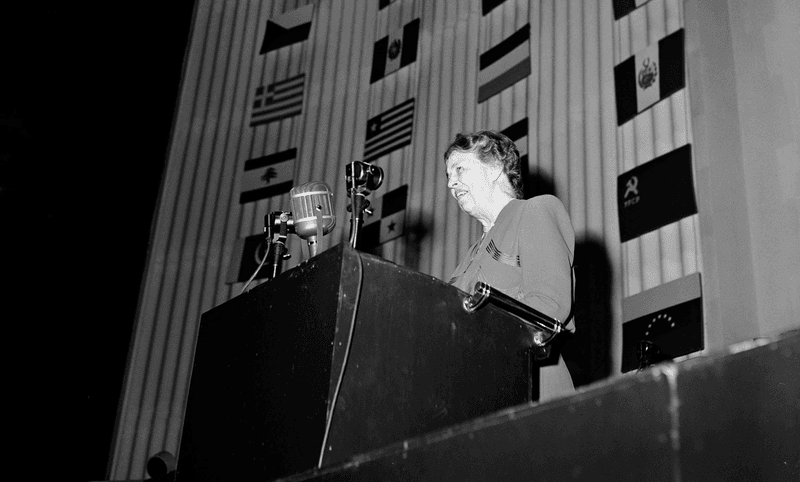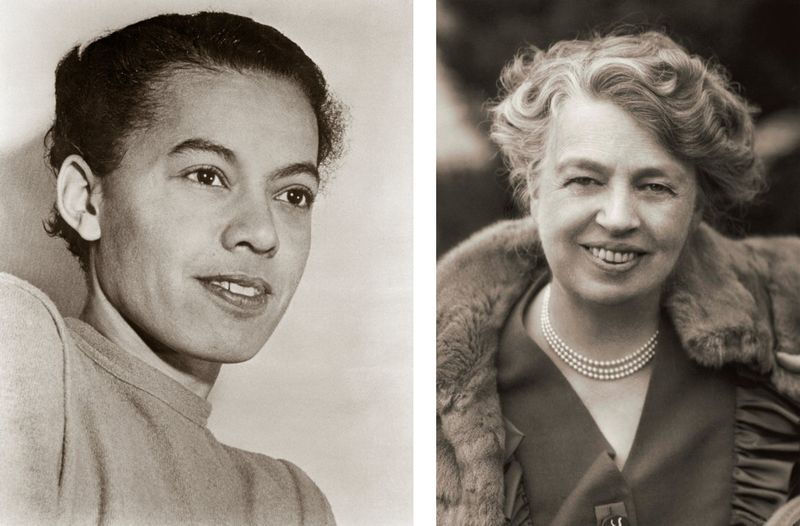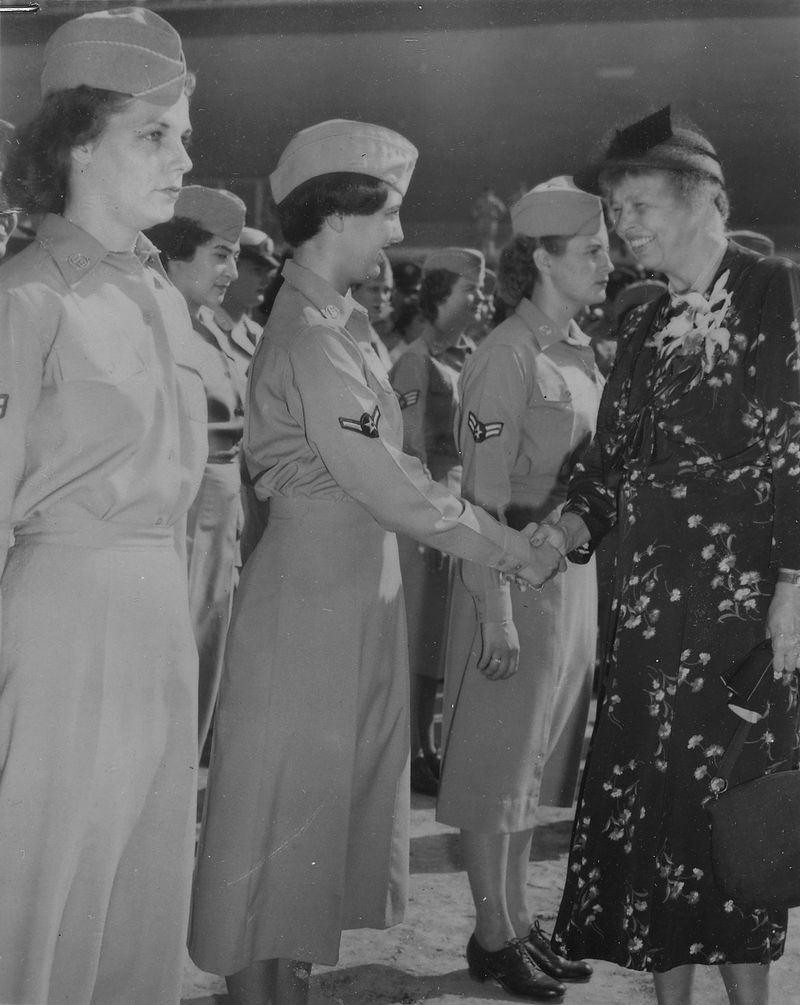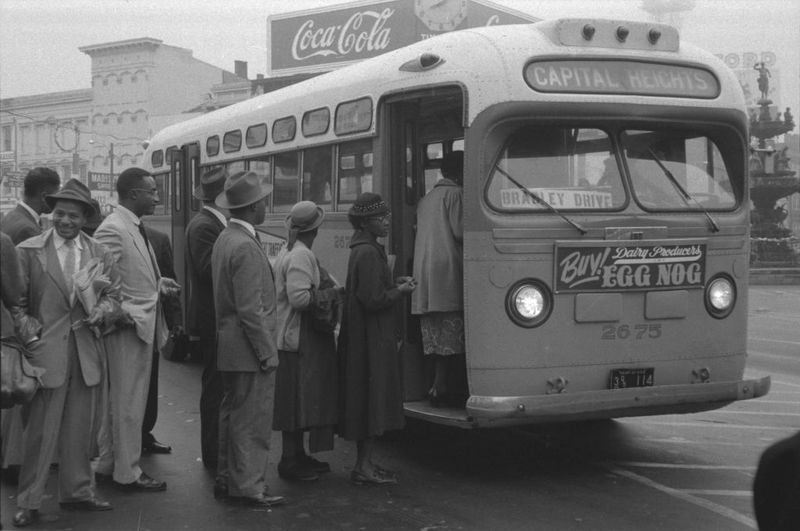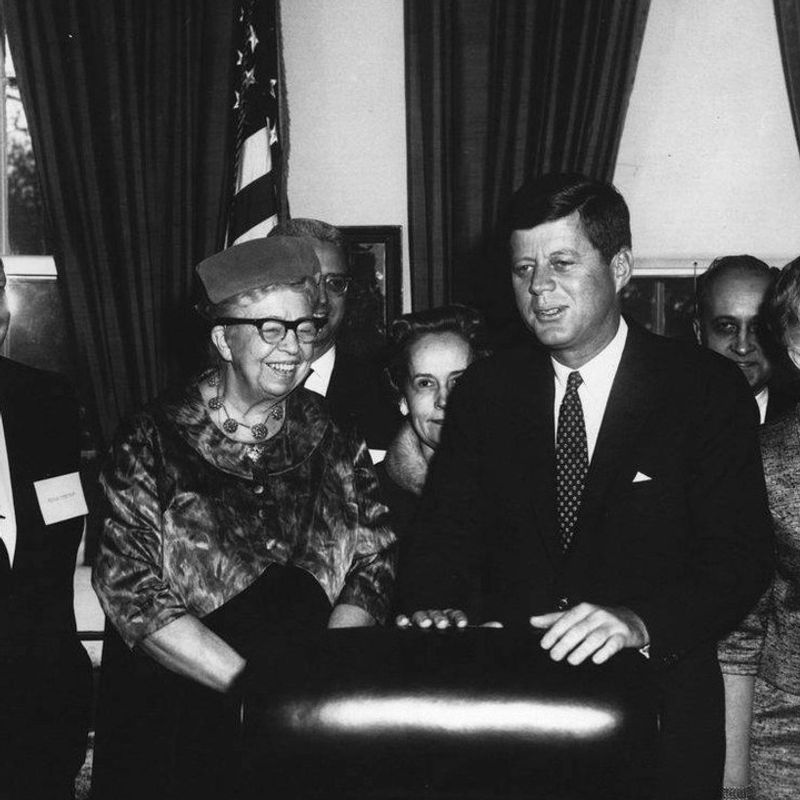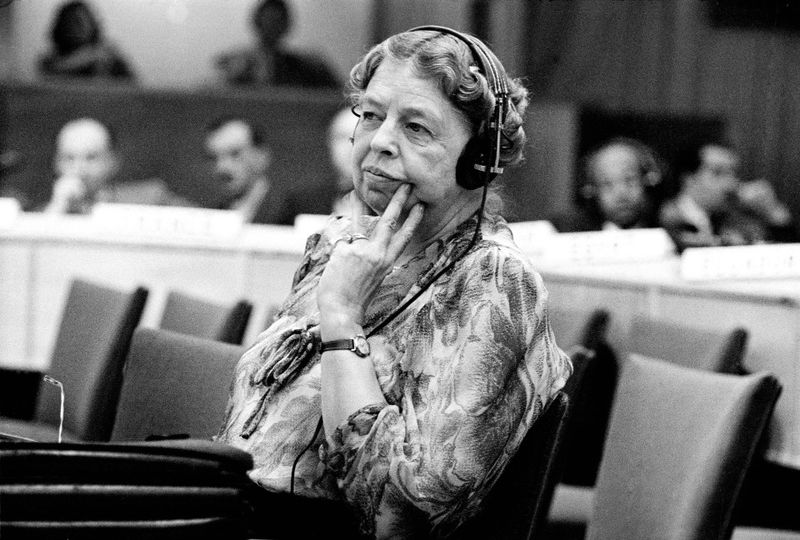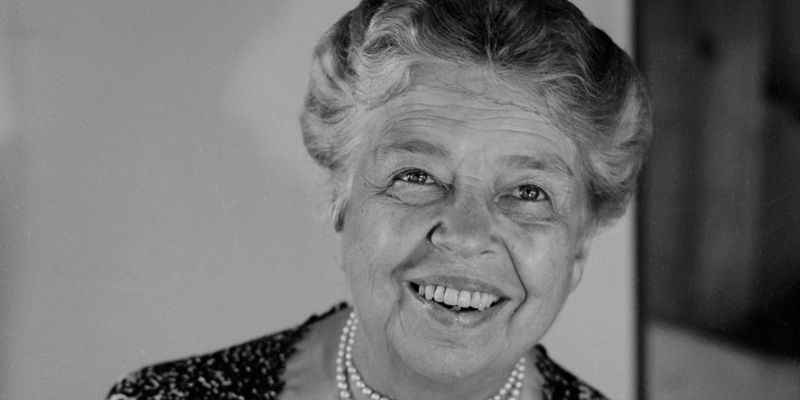Eleanor Roosevelt was not just the First Lady; she was a pioneering force in civil rights. Her courage and foresight led to transformative actions that reshaped the fabric of American society. Here, we explore her 17 bold moves that left an indelible mark on civil rights.
1. Resigned from the DAR Over Marian Anderson’s Ban
With a steely resolve, Eleanor Roosevelt challenged the status quo by resigning from the DAR. The organization barred Marian Anderson, a Black opera singer, from performing at Constitution Hall. Eleanor orchestrated Anderson’s iconic concert at the Lincoln Memorial instead, attended by over 75,000 people. Her stand against racial discrimination was a beacon of moral leadership. Eleanor’s actions demonstrated her commitment to equality. She leveraged her influence to fight for civil rights, setting an example of courage and integrity. This bold move resonated across the nation, inspiring change and unity.
2. Wrote a Scathing Letter on Lynching
In the shadow of injustice, Eleanor Roosevelt penned a powerful letter to FDR, demanding action against lynching. The brutal 1936 lynching in Florida ignited her fury. She wrote, “The government has a duty to protect its citizens from mob violence.” Her words were a clarion call for justice. Despite FDR’s reluctance to take direct action, Eleanor’s persistence did not wane. Her advocacy kept the issue in the public eye, laying the groundwork for future civil rights victories. Her unwavering stand showcased her fearless commitment to justice and equality.
3. Brought Black Leaders to the White House
Eleanor Roosevelt opened the doors of the White House to Black leaders, a groundbreaking move in her time. She invited Mary McLeod Bethune, founder of the National Council of Negro Women, as an advisor. This decision marked Bethune as the first Black woman to head a federal agency. Eleanor’s actions were a bold statement against racial barriers. Her inclusive approach fostered a sense of empowerment and paved the way for future generations. Her commitment to diversity and equality was not just symbolic but a catalyst for significant change.
4. Sat Between Black and White Audiences—Defying Segregation
Eleanor Roosevelt’s defiance of segregation stood as a testament to her courage. At the 1938 Southern Conference for Human Welfare, she deliberately sat in the Black section. Her actions forced the police to reconsider enforcing segregation laws. Eleanor’s fearless stance against racial injustice was a powerful symbol of resistance. Her presence blurred the lines of segregation, challenging societal norms. By choosing to sit between Black and White audiences, she made a bold statement. Her actions resonated as a call for unity and equality in a divided nation.
5. Pushed FDR to Ban Discrimination in Defense Jobs
Determined and unyielding, Eleanor Roosevelt pushed FDR to ban discrimination in defense jobs. Her relentless advocacy led to Executive Order 8802 in 1941. This order prohibited racial discrimination in wartime industries. Eleanor’s influence was pivotal in this landmark decision. She recognized the importance of equality in employment. Her efforts marked the first federal action against employment segregation. Eleanor’s advocacy underscored her commitment to justice and equality. Her determination in the face of resistance showcased her unwavering dedication to civil rights. She left a lasting legacy of change.
6. Publicly Called Out the Red Cross for Blood Segregation
Eleanor Roosevelt’s bold confrontation of the Red Cross’ segregation policy was a striking stand for equality. During WWII, she criticized the military’s practice of segregating blood donations by race. Eleanor called it “stupid and inhuman.” Her public denunciation of the policy highlighted her fearless advocacy. She challenged discrimination at its core, demanding change in institutional practices. Her words stirred public discourse, pushing for a more equitable society. Eleanor’s actions were a testament to her unwavering commitment to justice, inspiring others to question and challenge racial prejudices.
7. Championed Anti-Lynching Laws (When FDR Wouldn’t)
Eleanor Roosevelt’s advocacy for anti-lynching laws was a courageous act of defiance. FDR feared losing Southern Democrats, yet Eleanor testified before Congress. Her determination was unshaken by political obstacles. She wrote columns demanding federal anti-lynching laws. Her tireless efforts laid the groundwork for future civil rights legislation. Eleanor’s stand was a clarion call for justice and equality. Her fearless pursuit of change resonated deeply. She inspired others to join the fight against racial violence. Her legacy as a civil rights advocate remains a powerful testament to her courage and conviction.
8. Co-Founded the NAACP’s Legal Defense Fund
Eleanor Roosevelt’s co-founding of the NAACP’s Legal Defense Fund was a visionary step for civil rights. She worked with Thurgood Marshall, supporting legal battles against segregation. These efforts paved the way for landmark cases like Brown v. Board of Education. Eleanor’s commitment to justice was unwavering. Her collaboration with Marshall symbolized a partnership for equality. Together, they envisioned a future free from racial discrimination. Her support for the Legal Defense Fund demonstrated her belief in the power of law to effect change. Eleanor’s legacy as a champion for civil rights endures.
9. Wrote “My Day” Columns on Racial Justice
In her widely-read “My Day” columns, Eleanor Roosevelt courageously addressed racial injustice. Her writings from 1935 to 1962 were a beacon of hope and change. She named racism for what it was, a rare stance for a white public figure. Eleanor’s columns reached millions, challenging societal norms. Her articulate and fearless voice resonated with readers across the nation. Through her words, she inspired action and awareness. Her commitment to justice and equality was unwavering. Eleanor’s legacy as a writer and advocate remains influential, as her columns continue to inspire.
10. Forced Integration in New Deal Programs
Eleanor Roosevelt’s insistence on integration within New Deal programs was a bold move towards equality. She fought to ensure Black Americans had equal access to WPA jobs, Social Security, and housing aid. Often, she had to overrule racist local officials to achieve her goals. Eleanor’s actions were a testament to her commitment to justice. Her efforts to dismantle discriminatory practices paved the way for progress. She recognized the importance of equal opportunities for all. Eleanor’s legacy in advocating for integration within federal programs remains a significant chapter in civil rights history.
11. Pressed the U.N. to Address U.S. Racism
At the United Nations, Eleanor Roosevelt confronted America’s racial injustices on a global stage. Her position as a U.N. delegate gave her a platform to press the issue. She demanded that the U.N. address U.S. racism, confronting hypocrisy. Eleanor’s courage in highlighting domestic issues internationally was unprecedented. Her advocacy challenged America to live up to its ideals. Despite backlash from Southern politicians, she remained resolute. Her actions were a powerful call for accountability and change. Eleanor’s legacy as a diplomat and human rights advocate continues to inspire global conversations on equality.
12. Backed Pauli Murray’s Law School Fight
Eleanor Roosevelt’s support for Pauli Murray’s fight against educational discrimination was a defining moment. When Murray was denied entry to UNC’s law school, Eleanor stepped in. She funded Murray’s legal battle, providing mentorship and guidance. Eleanor’s actions were a powerful endorsement of equality in education. Her support empowered Murray, who later co-founded NOW. Eleanor’s commitment to justice transcended racial barriers. Her mentorship of Murray highlighted her belief in fostering future leaders. Her legacy as an advocate for women’s rights and equality remains a cornerstone in the fight for civil rights.
13. Demanded Black Women Be Included in War Efforts
Eleanor Roosevelt’s advocacy for Black women in the war effort was a bold stand for equality. She ensured the Women’s Army Corps (WAC) recruited Black women, despite the segregated conditions. Eleanor defended their right to serve overseas. Her actions were a powerful statement against discrimination. She recognized the importance of inclusivity in national efforts. Eleanor’s commitment to equality extended to all spheres of life. Her advocacy during WWII was a testament to her belief in justice. Her legacy as a champion for women’s rights and equality continues to inspire.
14. Tested the Interstate Bus Ban Before Freedom Riders
Years before the Freedom Riders, Eleanor Roosevelt took a stand against segregation on interstate buses. In 1959, she rode integrated buses through the South, challenging discriminatory laws. Her actions were a precursor to the Freedom Riders’ courageous journeys. Eleanor’s boldness in taking a stand against segregation was a testament to her enduring commitment to civil rights. Her actions inspired others to challenge racial injustices. Eleanor’s legacy as a fearless advocate for equality remains a significant chapter in the civil rights movement. She paved the way for future generations to continue the fight for justice.
15. Pushed JFK to Protect Civil Rights Protesters
Eleanor Roosevelt’s influence extended into the Kennedy administration. After the 1961 Freedom Rides, she pressured JFK to protect civil rights protesters. Her urgent warning, “The world is watching,” emphasized the need for federal intervention. Eleanor’s advocacy was crucial in ensuring the safety of protesters. Her actions demonstrated her unwavering commitment to justice and equality. Eleanor’s legacy as a champion for civil rights continued to inspire future leaders. Her influence in the civil rights movement remains a testament to her enduring dedication to justice and equality.
16. Called Out “Tokenism” in School Integration
Eleanor Roosevelt’s critique of tokenism in school integration was a call for genuine equality. She argued that “real equality means resources, not just access.” Her words challenged the superficial gestures of integration. Eleanor’s advocacy emphasized the need for substantial change. Her critique resonated with those seeking true equality in education. Eleanor’s commitment to justice extended beyond symbolic actions. She demanded meaningful progress in the fight for civil rights. Her legacy as an advocate for educational equality continues to inspire change. Eleanor’s words remain a powerful reminder of the need for genuine equality.
17. Left the White House—And Got Bolder
After leaving the White House, Eleanor Roosevelt’s dedication to civil rights intensified. As a U.N. diplomat, columnist, and activist, she continued her advocacy until her death in 1962. Her work transcended national boundaries, influencing global human rights. Eleanor’s boldness grew as she aged. Her fearless commitment to justice and equality never waned. She inspired countless individuals to join the fight for civil rights. Eleanor’s legacy as a pioneer for equality endures, reminding us of the power of relentless advocacy. Her life’s work remains a testament to her unwavering dedication to justice.
